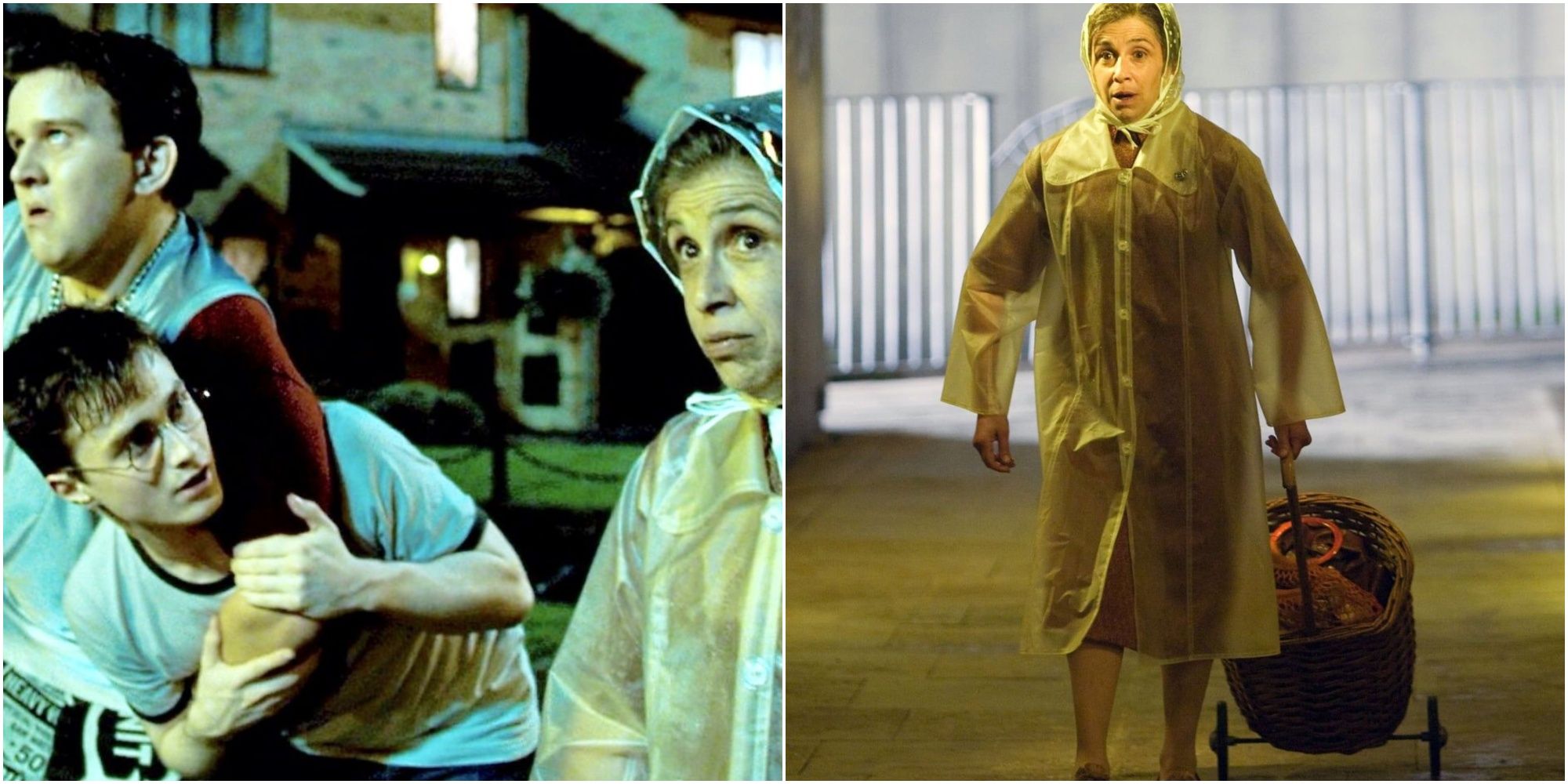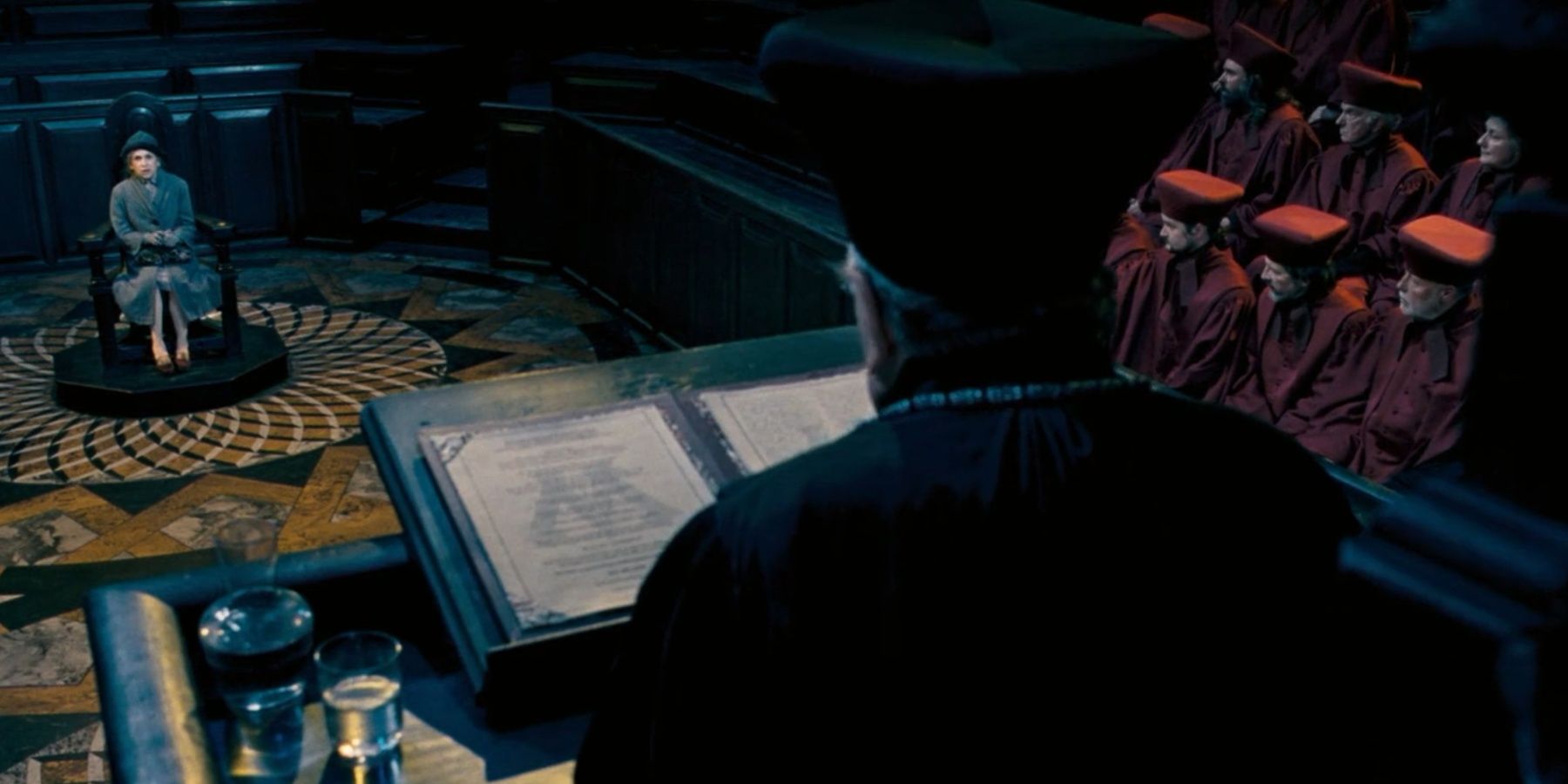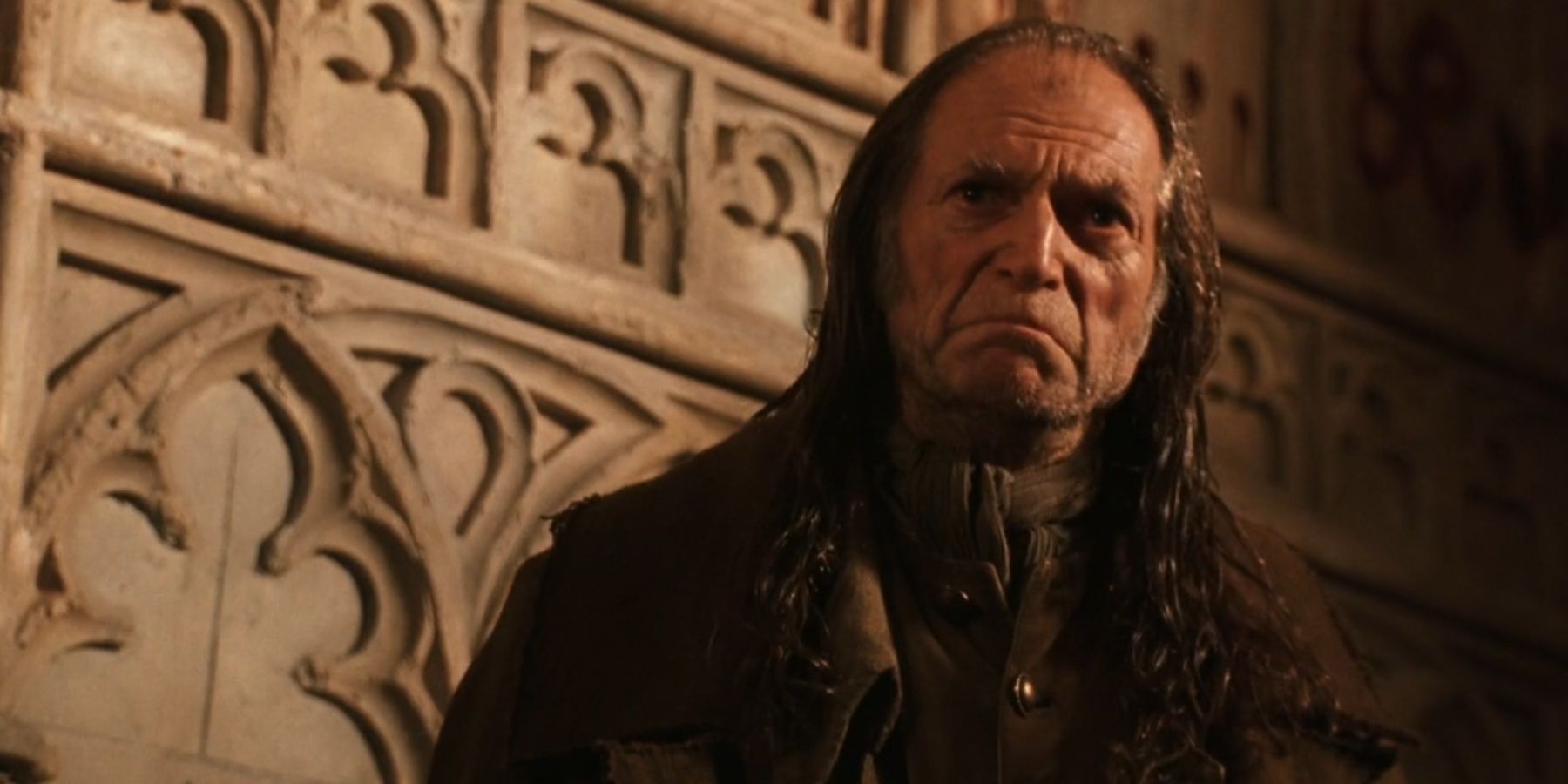Highlights
- The first chapter of Harry Potter and the Order of the Phoenix reveals that Mrs. Arabella Figg, a cat-loving lady from Wisteria Walk, knows about Harry's magical abilities and witnessed his fight against Dementors.
- Chapter 2 explains that Squibs are born to Wizarding parents but show no signs of magical ability. They are often treated with disdain and are rare in the Wizarding World.
- Squibs, like Mrs. Figg and Argus Filch, have extensive knowledge of the Wizarding World but lack magical abilities. They play important roles in Harry Potter's story.
The fifth Harry Potter book - The Order of the Phoenix dedicates its first chapter to the Dementor attack in Little Whinging. Titled, "Dudley Demented," the chapter talks about angst-ridden Harry's summer vacation at the Dursley household. He's been having nightmares about Cedric Diggory, he listens to the television news by lying in a flower bed outside the living room window of Four, Privet Drive, and he's spent most of his holidays in the streets, scavenging newspapers from the garbage bins. The first chapter also mentions that lately the cat-loving lady from the nearby Wisteria Walk, Mrs. Arabella Figg had begun asking Harry for tea whenever she met him in the street.
On August 2, Harry and his cousin, Dudley were attacked by two Dementors in an alleyway between Magnolia Crescent and Wisteria Walk. Harry conjured his stag Patronus to ward off the Dementors. Dudley was curled up on the ground in the aftermath of the attack, and just when Harry bent down to check up on him, he heard footsteps in the background. The first chapter of the fifth Harry Potter book says Harry almost raised his wand at whoever was approaching him, but the moment he saw it was Mrs. Figg, he tried to hide it. However, to Harry's surprise, she was aware that he was a wizard, and he had just fought off the Dementors.
Arabella Figg Knew About The Dementors
In Chapter 2 of Harry Potter and the Order of the Phoenix, "A Peck of Owls," Harry thinks Mrs. Figg is a witch. He asks, and she clarifies she is, in fact, a Squib, adding she's unequipped to help Harry fight off Dementors. She also reveals Dumbledore asked her to keep an eye on Harry. While Dudley remains supine, Mrs. Figg is hysterical. Finally, Harry picks Dudley off the alley floor and drags him along while Mrs. Figg walks ahead of the duo. She knows about the Statute of Secrecy, and when she drops the Reasonable Restriction of Underage Sorcery bit, Harry is forced to ask, "Why didn’t you tell me you’re a Squib?"
While Chapter 2 of Harry Potter and the Order of the Phoenix doesn't say much about Squibs, they are born to Wizarding parents. If such a child shows no signs of magical ability by the age of seven, it is highly likely that they are a Squib. That said, they could very well be late-bloomers, i.e., wizards/ witches whose magical abilities do not manifest until adolescence or adulthood. Again, as is with Squibs, late-bloomers are a rare kind in the Wizarding World. In simple words, a Squib is a wizard-born, non-magic fellow born to at least one magical parent.
Squibs are treated with disdain by magical folk, especially the pure-bloods. But of course, exceptions always exist. In Chapter 6 of Harry Potter and the Sorcerer's Stone, "The Journey from Platform Nine and Three-Quarters," Ronald Weasley mentions all of his family are wizards except for his mother, Molly's second cousin who is an accountant. The young wizard also remarks that they never talk about him. It is also believed that Muggle-born witches and wizards are the descendants of Squibs who'd married Muggles. In other words, such marriages can lead to the birth of a wizard born to Muggle parents.
The Differences Between Squibs And Muggles
One of the key differences between Squibs and Muggles is that the former kind has extensive knowledge of the Wizarding World, as demonstrated by Mrs. Figg in The Order of the Phoenix. Mrs. Figg was a member of the Order of the Phoenix, clever enough to keep her truth from Harry, and smart enough to reveal it at the perfect time. She makes a key contribution in Chapter 8 of Harry Potter and the Order of the Phoenix, "The Hearing." She is a witness at the disciplinary hearing of the twelfth of August conducted to examine Harry Potter's offenses under the Decree for the Reasonable Restriction of Underage Sorcery and the International Statue of Secrecy. She introduces herself as Arabella Doreen Figg, a resident of Little Whinging, in proximity to Harry's.
Mrs. Figg's introduction prompts the Head of the Department of Magical Law Enforcement, Amelia Bones to remark that the Ministry has no record of a witch/ wizard living in Little Whinging, except for Harry. She clarifies that she is a Squib. The Minister for Magic, Cornelius Fudge asks her to leave the details of her parentage with his assistant, and asks her to go on. She states that she was able to see Dementors "running" down the alleyway between Magnolia Crescent and Wisteria Walk. She explains how the aura of the warm summer's night changed when the Dementors appeared, and how they went for the boys, forcing Harry to produce a Patronus. Madam Bones finds her testimony convincing while Fudge remains critical.
Another notable Squib in the Harry Potter lore is the caretaker of Hogwarts - Argus Filch. In the second Harry Potter book - The Chamber of Secrets, Filch sobbed and accused Harry of killing his pet cat, Mrs. Norris. Dumbledore assured him his pet wasn't dead but petrified, but he kept yelling, "He [Harry] knows I'm a Squib!" Though Harry knew nothing about Squibs, later, Ronald Weasley explained that they are born into Wizarding families but have no magical abilities. Ronald also attributed Filch's bitter nature to him being a Squib. While Arabella and Filch are both Squibs, truth is, each character is important in its own right.






